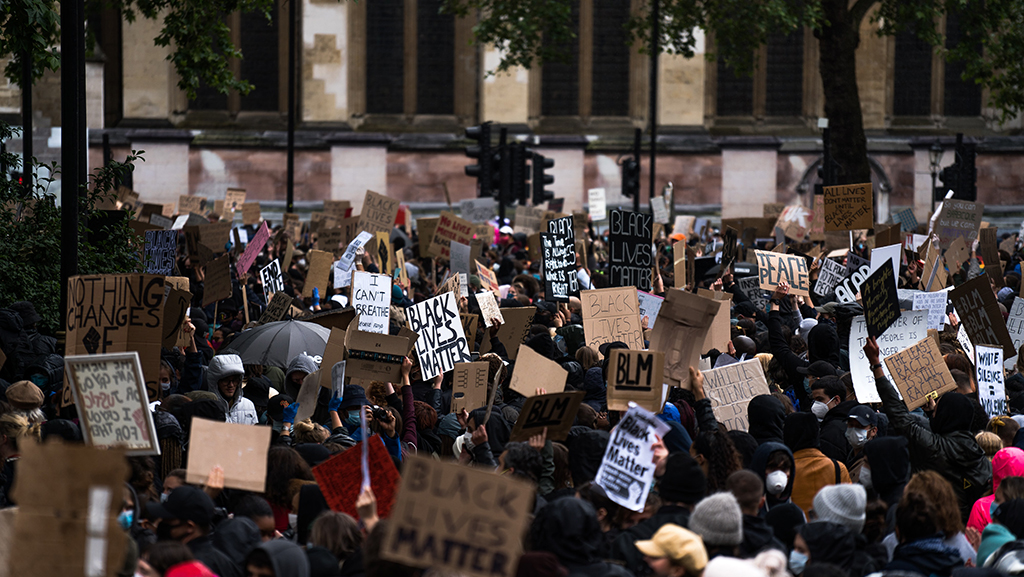History: a discipline reserved for the elites?
Countries like the United States and the United Kingdom offer History programmes at the most privileged universitiesA new UOC master's degree provides the keys to understanding the complexity of present-day societies

The debate on the value of History studies is still relevant just when some universities, for example in the United Kingdom, are reducing the number of courses offered in humanities, supposedly for economic reasons. However, this cutback coincides with a paradoxical situation: keeping these courses at elite universities. This has alerted specialists, who have warned that knowledge of history should not be reserved for the future ruling classes or elites. Other examples show that reflection continues to be considered of use in some circles: without looking any further, the executive chairman of the new CaixaBank, José Ignacio Goirigolzarri, confessed in an interview that he reserves two hours a week to study philosophy, justifying it in view of the benefits that this discipline brings to confronting problems. There are also paradoxes in fields such as the new technologies. Likewise, in the schools attended by the children of Silicon Valley gurus, tablets are not permitted or access to them is limited.
In this context of a false retreat of Humanities courses in universities, next year the UOC is launching the new University Master's Degree in History of the Contemporary World, which demonstrates the value of history as a tool to analyse present and future challenges. Its director, Jaume Claret, considers that "the fact that elite centres and ruling classes maintain and even increase the presence of humanities and social sciences during their education is a very telling paradox concerning the false allegations about its uselessness". In the case of History, he said "apart from basic knowledge to understand the origins of the present-day world, the discipline provides us with methodological tools and, above all, a method to think historically and understand the processes which characterize human experience".
The new master's degree offers a contemporary world view. The chronology begins with the emergence of modernity and continues up to the present day. "We focus on relevant and topical historical processes, with boundaries which correspond to thematic rather than geographic criteria", explained the director. This vision means that the course talks, for example, about the productivity revolutions and the more recent globalization and uberization, analysing how their impact, depth and timeline vary depending on the region. "We talk about the West, but also about Asia or other areas of the world, but in an integrated and reasoned manner because, without a global perspective, our understanding will always be limited", added Claret.
Topical issues are included in the wide range of courses of the master's degree, such as the climate emergency, gender, the new narratives and inequalities, and its teaching staff can offer a fully up-to-date perspective in each of the subjects. The doctor in History and expert in the Chinese economy Carles Brasó provides the keys to trade wars or the dispute for certain scarce and strategic resources. About the new master's degree, Brasó considers that "studying contemporary history should be useful for the student, and for society in general, to improve the understanding of contemporary phenomena" with the aim of "detecting demagogic discourses or those which are not based on observable facts and to be able to create discourses (and undertake research) with a sound conceptual basis".
For her part, Dr Joana Maria Pujadas, a population expert, contributes her research on the effects of epidemics, migrations and life expectancy. This historian mentioned that she will address "the challenges of present-day societies explained from a historical and gender perspective" to endeavour to answer questions such as "why don't we have children or why are democratic societies increasingly unequal, challenges which form part of the United Nations 2030 Agenda".
The gender perspective changes the conclusions
A course on economic revolutions includes teaching materials with collaboration from the Cambridge lecturer Natàlia Mora who defends the gender perspective as an enrichment of our understanding of complexity. "Incorporating the gender perspective changes the conclusions that we had reached when we ignored women in industrialization processes", she said. "It's not so much a question of incorporating the gender issue into industrialization processes, as seeing that these transformations cannot be understood without it."
The cross-disciplinary nature of the master's degree can be seen in courses such as Writing the Past. Faculty member Neus Rotger explained that the course is innovative because "it considers the writing of the past at the crossroads of the disciplines history, philosophy of history and literature, and it does so starting from a corpus of contemporary works which includes the historical essay, narrative fiction and non-fiction, theatre, cinema, the comic and animation". Marta Puxan, a member of faculty on the same course, considers the new master's degree and studying the discourse to be relevant because "we're witnessing the creation of diverse discourses on recent events which are modified by both political interests and new knowledge, and so it's very interesting to think about how the account of history is created and how it is negotiated".
The aim of the master's degree is not "to provide recipes" starting from history, warned Claret, but rather to recall that "without the appropriate coordinates and without knowing the previous processes, it's obvious that we're starting out at a disadvantage when it comes to understanding the present and imagining possible scenarios for the immediate future". The director thinks that there are dynamics which transcend the specific moment and need to be understood and analysed from a diachronic perspective. In this respect, he added that "historical methodology allows us to access a type of thinking in which the analogy, criticism and competencies mobilized give us an advantage both on understanding and explaining the past and on providing foresight for the future".
Experts UOC
Press contact
-
Editorial department
